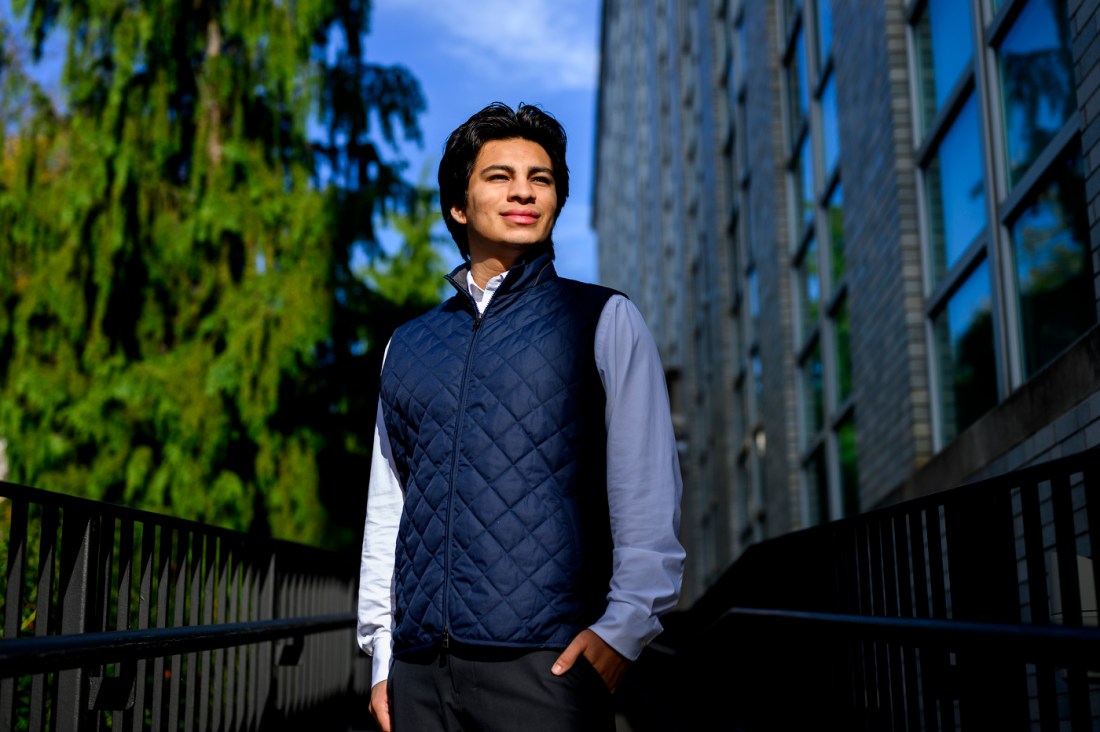When he was 12 years old, James Elespuru’s father made him a deal — if Elespuru moved his savings from a bank account with .01% interest to the stock market, his father would cover any capital losses.
Elespuru, now a third-year student at Northeastern University studying finance and economics, says the deal has paid off.
“He encouraged me to do research on businesses and look at the overall macroeconomic situation,” Elespuru said. “Now, he asks me for help, which is kind of nice.”
His father is not the only one benefiting from Elespuru’s financial calculations.
This summer, Elespuru completed a co-op at Banco de Crédito del Perú, the largest bank and the largest supplier of integrated financial services in Peru. At the bank’s headquarters in Lima, Elespuru focused on high-level credit risk, particularly among companies in the agricultural sector.
“I was looking at how macro events affect how companies can pay back their debt,” Elespuru explained. “Gaining the knowledge of how the business works, specifically how commodities and macro risk affect businesses in the agriculture industry and modeling downside risks is really important.”


Nicolas Aguirre Roldan, a credit risk associate who supervised Elespuru at the bank, said Elespuru’s role was important because he was creating foundational models for a new bank initiative.
“He is a very able guy who is not only good technically but also got along with the group very well, adding to the cohesion of the team,” Roldan said.
The co-op was a bit of a homecoming for Elespuru.
His parents both grew up in Peru and, through them, he has citizenship in the country. Elespuru, who now lives in the Bay Area, also visited family in Lima every couple years while he was growing up.
That’s not to say that Peru was exactly familiar to Elespuru — particularly its financial markets.
“A very few industries dominate the whole economy — like mining and agriculture, basically — compared to the U.S., where there’s several industries that are booming,” Elespuru explained.
Those industries also generate wealth that is “mindblowing,” Elespuru said, especially considering that Peru’s poverty level has recently ticked up following the pandemic, a recession and political turmoil.
Peruvian work culture also took some getting used to, Elespuru said.
“Compared to the U.S., their culture’s a lot more open,” Elespuru said. “You speak a lot more freely about your personal lives, and you can also ask people about their personal lives, which is considered appropriate there.”
But Elespuru said his trips to the country had prepared him well. As had Northeastern.
“I originally thought I could study finance, I could study economics, but I didn’t know how to choose between the two,” Elespuru said. “But at Northeastern I’m able to study both, which is really nice.”
Meanwhile, his experience in Peru prepared him well for his next step — a second co-op in private equity.
“Everything I was doing was directly relatable to what private equity firms do in terms of operations for their portfolio companies,” Elespuru said. “Honestly, it couldn’t have set me up any better.”

